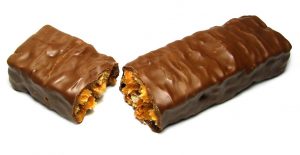They come into my office. Their guard is down and they are ready to finally take the steps necessary to change their life around and start being healthy, happy, fit and functional. This typical case repeats itself with individuals who may be obese and have other comorbidities such as type 2 diabetes, heart disease, high cholesterol, high blood pressure, fatigue, or emotional issues.
Then comes the question that I’ve heard time and again, “How did I let this happen to me?” My answer is, “It’s not your fault!”
Food addiction
Food addiction is real. Unfortunately, it is far more prominent than one would think. Food products can hijack your reward system much the same way as drugs, alcohol, or the internet. In all addiction aside from food, a person can do without the addictive item. Because we need food in order to sustain our lives, we can’t just say “do without food” as we might with drugs, alcohol gambling and the like.
Let us take a look at the principles of addiction in general and then we can come back to how to deal with food addiction in particular.
Getting hooked
We become addicted to a substance or activity for the same reason that we initially try it: Because we like the way it makes us feel. Although some people may try a drug, take a drink or eat a donut and never become hooked, almost everyone has the capability to become addicted. Users cross a threshold and undergo a transition to addiction. Research has shown that changes take place in the brain after this transition.
The way we learn to survive is based on a reward system. When we do something that aids in our survival, like eating or exercising, the brain’s limbic system rewards the body by releasing dopamine, a chemical that makes us feel good. Since we like the way we feel, we learn to repeat the behavior.
All substances of abuse cause the brain to release high levels of dopamine. This release can be two to 10 times the amount our brain releases normally, giving the user a sense of a “rush” or “high.” Prolonged use of a substance can lead the brain to stop producing as much dopamine as it naturally does. This creates further withdrawal, leading to a physical dependency where the addict needs to use more of the substance just to feel normal, creating a vicious cycle that can be difficult to break.
Hooked on food
Hyper-palatable foods are those which seems to be more addictive than others. Is sugar as addictive as heroin or cocaine? Studies say yes. As Yale University professor Dr. Kelly Brownell states, “Food can act on the brain as an addictive substance. Certain constituents of food, sugar in particular, may hijack the brain and override will, judgment, and personal responsibility.”
So when I tell someone who is obese that it’s not his fault, what do I mean? How does food addiction phenomenon play into this?
Unfortunately, over 65% of food consumed in the United States today is highly processed. The companies that manufacture and process these “food-like eatable items” (I wouldn’t call them food) know exactly how to put in enough addictive substances – salt, sugar, fat and other chemicals – to make you want more, and more, and more. Food manufacturer hires food scientists to make sure this works!
Your body’s mechanisms for knowing when you are truly full or truly hungry have been obliterated by these ultra-processed foods. So yes, you always want one more. It’s really not your fault.
Undoing the damage
How do we undo food addiction and fix the brain’s need for more pleasure foods?

The first thing we do at The Wellness Clinic is substitute other foods instead. People who eat real food—the kind that mostly come from plants and don’t have a long list of ingredients — will get through this process much easier. With this switch, clients aren’t hungry, but the first week or two can be difficult. Drinking a lot of water is one tool that is very helpful. The key is to not get hungry. When one eats a lot of healthy, whole plant-based foods it becomes clear these foods don’t have the addictive properties of processed foods.
A client I worked with last year was fully addicted to sugar and all kinds of processed foods. She decided to go 100% plant-based and started exercising. The beginning was challenging, but she was able to tough it out for 3 weeks while her body was detoxifying. Today, she is almost 20 kilos lighter, doesn’t go near addictive foods, has reversed her kidney disease and is off all her medications, including medication for high blood pressure.
Still your choice
Your extensive weight gain isn’t because you didn’t have enough will power. Yes, food addiction is real, but it’s not an excuse! We need to take control of our habits for eating, exercising, and managing stress.

Too much food is still too much food, even when making healthy choices. By sticking with a mostly plant-based diet, avoiding hyper-palatable foods, you will automatically end up consuming less calories. Exercise goes beyond food addiction. It’s needed for our health in general, and should include both aerobic and muscle building activities. The need to reduce and manage stress is vital to all aspects of our health and weight loss.
This week I was pleased to hear from two clients that they chose not to eat foods that they used to binge on and would never say “no” to. They have gained awareness and know how much better they feel now all the time. The 3-4 minutes they get a “high” from eating a particular food has started to lose it’s appeal.
Choosing the main principles of lifestyle medicine— a plant strong diet, exercise, good sleep and good stress management — can beat back the addictive qualities of the poor quality, ultra-processed foods that unfortunately, have become the mainstay of our diet. When you break food addictions, you “add hours to your day, days to your year and years to your life.”


Thanks for the informative email. It reminds me that I can choose a healthier way to live, by fighting my food addiction and working more efficiently to achieve my goals.